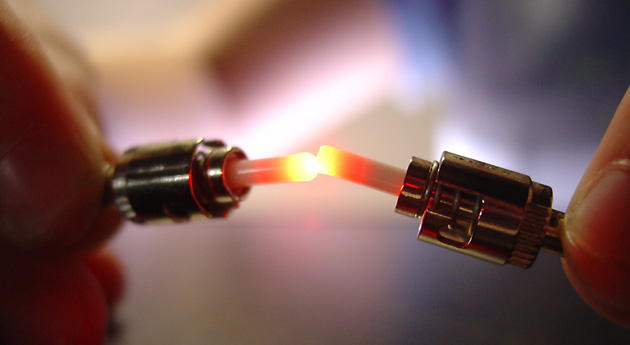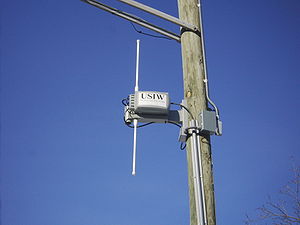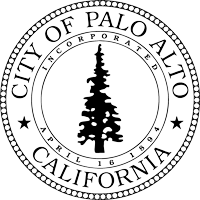 AT&T isn’t letting Google Fiber’s expansion plans go unanswered. The telecom giant hasannounced that it’s looking at bringing its GigaPower internet service to as many as 21 additional big cities and their nearby municipalities. There’s some potential for direct competition with Google, as both companies are looking into gigabit access for key urban areas like Atlanta, San Antonio and San Jose. However, it’s clear that AT&T is taking some initiative here — it’s also exploring rollouts in Chicago, Los Angeles and other hubs that aren’t currently on its rival’s roadmap.
AT&T isn’t letting Google Fiber’s expansion plans go unanswered. The telecom giant hasannounced that it’s looking at bringing its GigaPower internet service to as many as 21 additional big cities and their nearby municipalities. There’s some potential for direct competition with Google, as both companies are looking into gigabit access for key urban areas like Atlanta, San Antonio and San Jose. However, it’s clear that AT&T is taking some initiative here — it’s also exploring rollouts in Chicago, Los Angeles and other hubs that aren’t currently on its rival’s roadmap.
Tag: Google
Google fiber: Palo Alto loses out to Kansas City
Midwest community to get ultra high-speed Internet project instead of Silicon Valley
by Sue Dremann
Palo Alto Weekly Staff
A Midwest city has beaten out all Silicon Valley contenders, including Palo Alto, to become Google’s first fiber-optics-wired city, executives announced Wednesday (March 30).
Kansas City, with a population of 145,786, was chosen out of 1,100 cities that applied in 2010 for the “Google Fiber for Communities” project, sponsored by the Mountain View tech giant.
The ultra high-speed fiber-to-the-home connections will provide Internet access at 100 times faster than typical broadband services, the company said. Fiber transmits light over fiber-optic cable — a strand of glass as thin as a hair — to send and receive data. It is far faster than electric signals sent over metal wires.
Kansas City, Kan., to be Google’s broadband test bed
by Caroline McCarthy
There’s some rough news for Topeka, Kan., the city that courted Google’s ultra-high-speed municipal broadband project by changing its name to Google. The Mountain View, Calif., tech giant announced Wednesday that the lucky city that gets to be its broadband guinea pig not only isn’t Topeka, but it’s Kansas City, Kansas–just an hour’s drive away. Ouch.
More than 1,100 communities had applied since the call for applicants was announced about a year ago. Kansas City will first see the new developments next year, and Google is already looking for additional communities to join the test.
Ultra high-speed broadband is coming to Kansas City, Kansas
 As part of our overall goal to make the web better for users, last year we announced a new project: to provide a community with Internet access more than 100 times faster than what most Americans have today. The response was overwhelming—nearly 1,100 cities felt the need for speed—and we were thrilled by the enthusiasm we saw across the country for better and faster web connections. Thank you to every community and individual that submitted a response, joined a rally, starred in a YouTube video or otherwise participated.
As part of our overall goal to make the web better for users, last year we announced a new project: to provide a community with Internet access more than 100 times faster than what most Americans have today. The response was overwhelming—nearly 1,100 cities felt the need for speed—and we were thrilled by the enthusiasm we saw across the country for better and faster web connections. Thank you to every community and individual that submitted a response, joined a rally, starred in a YouTube video or otherwise participated.
Sonic.net Will Manage Google’s Stanford Fiber Network
Sonic.net — a well-known, albeit small, independent ISP based in Santa Rosa, Calif. — is going to operate the trial fiber-to-the-home network to be built by Google on the Stanford University Campus. The network, whose construction is going to start in early 2011, will provide gigabit speeds to nearly 850 faculty and staff owned homes on the Stanford campus.
FCC paves way for new mobile devices

- Image via Wikipedia

- Image via Wikipedia
By Jasmin Melvin
WASHINGTON (Reuters) – U.S. regulators paved the way on Thursday for new, faster wireless devices by opening unused television airwaves for mobile broadband use.
Device makers such as Dell Inc, Nokia and Motorola Inc stand to profit from the Federal Communications Commission’s unanimous vote to allow unlicensed wireless devices to operate on this idle spectrum.
US hunters shoot down Google fibre
Repairers forced to ski in to Oregon back woods.
Google has revealed that aerial fibre links to its data centre in Oregon were “regularly” shot down by hunters, forcing the company to put its cables underground.
The search and advertising giant’s network engineering manager Vijay Gill told the AusNOG conference in Sydney last week that people were trying to hit insulators on electricity distribution poles.






